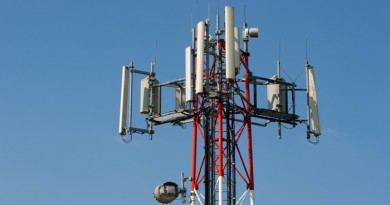SEC, NSE, CSCS make N11.430bn from share sales in 2017
A total of N11.43 billion accrued as earnings from the sales of shares to the three major players in the Nigerian equities in 2017, according to findings by business a.m.
The Securities and Exchange Commission (SEC), the market regulator, the Nigerian Stock Exchange (NSE), the market platform provider and the Central Securities Clearing System (CSCS), which provides clearing facilities to facilitate transactions, jointly earned this amount from the sales.
The 2017 figures represented an increase of N6.210 billion or119 percent over the amount earned in the corresponding period of 2016, which had stood at N5.220 billion.
SEC received 0.3 percent of total value of equity sold by shareholders (seller) as commission, NSE received 0.3 percent of total value of equity bought by shareholders (buyer) as commission less value added tax, while the CSCS, which facilitates the delivery (transfer of shares from seller to buyer) and settlement (payment for shares) of securities transacted on the floor of the NSE received 0.3 percent of total value of equity bought by shareholders (from buyer) as commission less value added tax.
Market activities had risen significantly in 2017 with turnover figures showing a 121 percent rise to N1.27 trillion during the year, from N0.58 trillion in 2016.
The rise last year reflected a recovery in activities at the bourse from the macroeconomic overhang of a commodity down cycle, pushing it to become the third best performing market in 2017 globally, with a 42 percent return in the NSE ASI index.
The three market umpires, namely SEC, NSE and CSCS, each made N3.810 billion from equity sellers in 2017, available data show. The Nigerian government, which is responsible for collecting stamp duty, also benefited from the increased activities at the Stock Exchange as shareholders paid a total of N1.906 billion as stamp duty to the government.
Due to the difference in brokerage commission charge, business a.m. found that stockbroking firms earned between N19.02 billion to N34.29 billion from shareholders during the period.
Apart from the commission received from equity transactions, there are other ways through which SEC, NSE and CSCS generate money.
Some of the key revenue sources for SEC are fees on government bonds and debentures of public limited companies; processing fees for schemes of merger/acquisition and takeover as well as fines and penalties.
The commission is also entitled to application fees for registration of a collective investment scheme at a flat rate of N35,000; filing fee for registration of securities at a flat rate of N10,000; registration fees of securities of public companies (including rights issue); special funds; and processing fees on offer for sale.
Also, the NSE generates money from listing fees, broker/dealer fees, fines, among others.
Speaking in January at the 2017 market recap and outlook for 2018, Oscar Onyema, chief executive of the NSE attributed the performance in part to Central Bank’s monetary policies that resulted in increased liquidity in the foreign exchange market.
He stated that “IPO activity in the year remained mute, however, there were several other positive indicators including the revival of supplementary listings and the return of new issuances. The value of supplementary listings increased by 27 percent, bringing the total value of equity issues in 2017 to N408 billion”.
Onyema also said the NSE fixed income market recorded mixed performance. “New bond issuances increased over the previous year, while bond yields gradually moderated from 2016 levels amidst easing inflation and greater FX stability. Yields across various tenors declined between 0.4 percent and 1.5 percent, and market turnover declined by 24 percent in 2017, as investors sought higher returns in alternative product classes.
“However, supplementary issuances by the Federal Government saw bond market capitalization increase by 34 percent year-on-year,” he said, adding that, “The NSE’s ETF market witnessed increased activity across key metrics in 2017, recording a 272 percent year-on-year growth in trade volumes, 33 percent growth in turnover and a 40 percent year-on-year increase in market capitalization to close the year at N6.69 billion




